Climate change and climate injustices can be distressing to experience and witness. The climate crisis can trigger emotions like anger, fear, sadness, hope, or guilt. Often these are normal and appropriate responses. How we engage with these emotions can either motivate or hinder climate justice action. Research shows that it is possible and necessary to transform climate anxiety into proactive action.
Community service organisations have a role to play in helping staff and communities cope with and act more effectively on climate change and injustice. They can facilitate open discussions about climate change, normalise people expressing their emotions, address climate impacts and advocate for change and action. This can include things like debriefing sessions, support groups, and peer networks.
Trauma-informed practice is essential when engaging with climate justice and resilience work, as it recognises the profound and varied impacts of trauma on individuals and communities. This approach requires understanding how climate-related events—such as natural disasters, displacement, and systemic injustices—compound existing traumas and create new ones. Creating safer and supportive environments that foster trust and address the unique lived experiences of those affected must be prioritised.
The toolkit includes resources on climate emotions and links to external sources. Drawing on those resources, the strategies below may help to support people using this toolkit in their groups and partnerships to safely engage with their emotions. The strategies below are not a substitute for professional mental health advice.
Strategies for safe engagement with climate emotions
Engage with your climate emotions
- Familiarise yourself with the climate emotions glossary in the Toolkit. Recognise terms like eco-grief, solastalgia, climate anxiety, eco-anger, and eco-depression and use the climate emotions tool to better understand and articulate your emotional responses to climate change and injustice.
- Make time to learn about structural injustices and oppressive systems such as ableism and the ongoing impacts of colonisation that affect some communities more than others, but ultimately harm us all!
- Practice self-awareness by continually acknowledging and reflecting on your feelings. Respect times when you may not have the capacity to engage with climate justice issues.
Create or join a safe space to talk
Have conversations where you talk openly about your feelings with trusted colleagues, friends, or support groups. It can help to hold regular sessions to connect and mutually support people you are working with on climate justice and resilience, such as peer supervision, peer supervision, yarning circles, or climate cafes.
If creating one with people you are working with these tips may help:
- Start with people who already have supportive and caring relationships within your group or organisation.
- Choose an accessible environment to ensure the space is welcoming, inclusive, and free from distractions.
- Set ground rules and group values to foster safety, vulnerability, respect and confidentiality.
- Note that for all safe engagement, it is essential to recognise and address power dynamics to ensure that all voices are heard and respected, fostering a safe and inclusive environment for discussion.
- Foster a culture of dadirri (deep listening) where it is safe for everyone be open and share. Nurture cultural safety to respect the diverse cultures in the group, including Aboriginal and Torres Strait Islander Peoples’
Dadirri (deep listening) is “the strategy of ‘deep listening’ when working alongside Aboriginal peoples
and their communities requires a protocol for listening to what you are
being told by Elders and/or Aboriginal peoples with whom you are working.
MiriamRose Ungunmerr-Baumann (n.d.) describes ‘deep listening’ in her
language as ‘dadirri’ (Southern Queensland) and believes that ‘dadirri’ is in
everyone — it is not just an Aboriginal thing. It is a consciousness that
everybody has, and it is a central element not only for building trust with
Aboriginal people and their communities but also for “fostering a personal
connection” to the space or Country you are on. It is important to note
whether one is Indigenous or non-Indigenous, it is a deeply respectful
protocol to ‘sit and listen’. When you sit and listen, you begin to get a sense
of awareness of connecting to the Country on which you sit and also to the
people you have come to yarn with.”
(Source: 3 Cuppa Tea Rule)
Read more:
Follow some of these well-being tips
- Remember there is still time to prevent the worst of climate change! Everything we do today matters.
- Celebrate and pay attention to good news! Stay informed about positive developments and solutions in climate action around you and across the world.
- Limit exposure to doom and gloom content in the media and social media. Regularly step away to process information and emotions.
- Take action by engaging in positive and collective climate actions to address feelings or helplessness. Be part of a community such as the climate movement, collective action, and creative approaches to change.
- Maintain your wellbeing in a holistic sence – including your body, mind, spirit and connection to Country and community
- Explore different coping strategies like meaning-focused, problem-focused, and emotion-focused coping.
- Take a break and pace yourself by engaging with the Toolkit and other actions in manageable segments rather than all at once.
- Keep a journal of your thoughts and feelings as you engage with the Toolkit.
- Reach out to a mental health professional, doctor or other trusted support to discuss accute mental health concerns.

